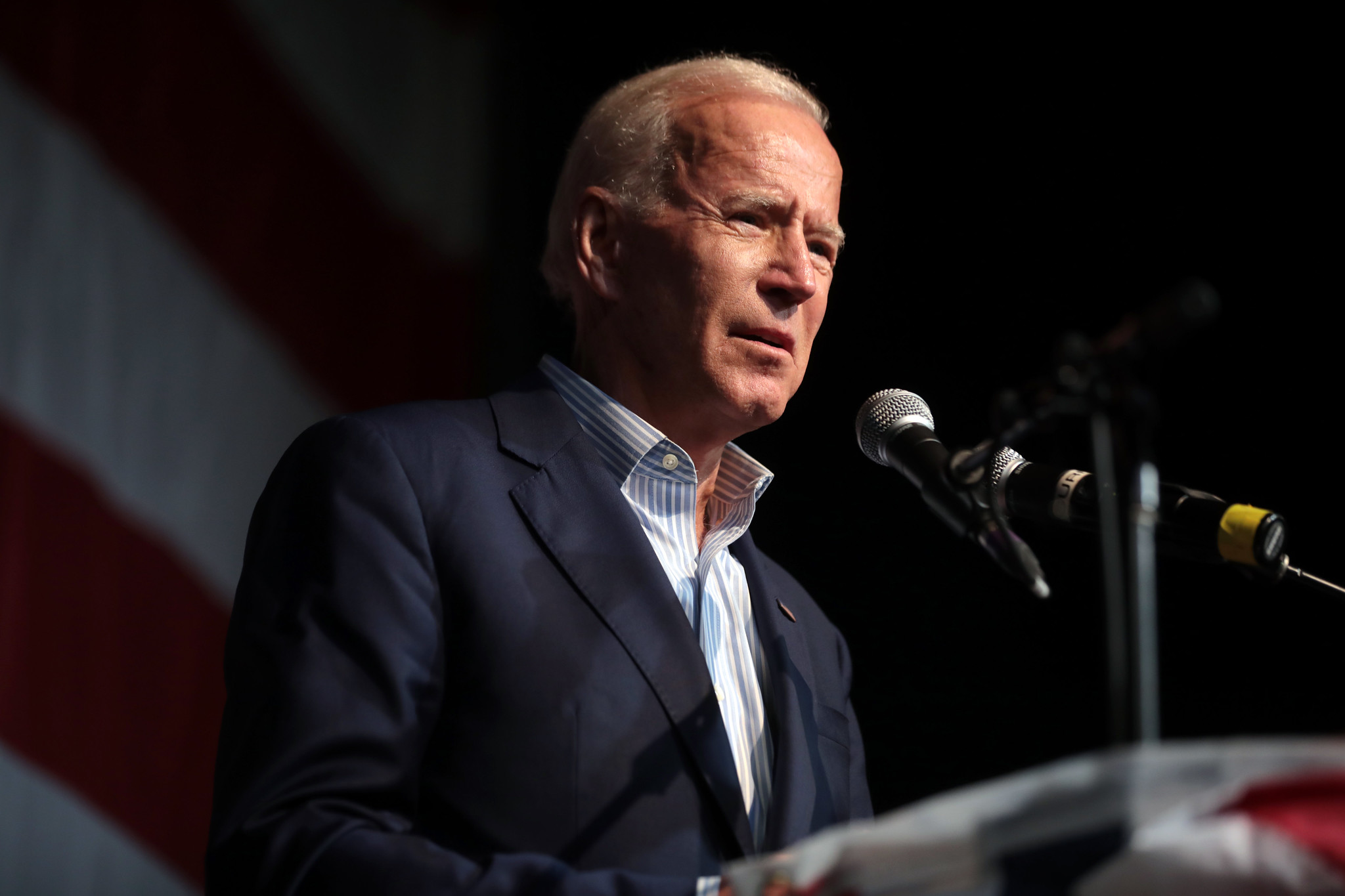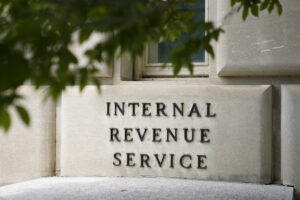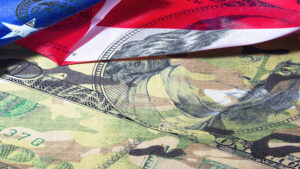Being Joe Biden’s Brother Is Highly Lucrative
Jim Biden has long been one of his sibling's biggest supporters. He's also exploited Joe's fame and connections for his own financial gain. Former Vice President Joe Biden. (Gage Skidmore / Flickr)
Former Vice President Joe Biden. (Gage Skidmore / Flickr)
ProPublica is a nonprofit newsroom that investigates abuses of power. Sign up to receive our biggest stories as soon as they’re published.
Jim Biden was in a bind. An investor had put up $1 million to help Jim and his nephew Hunter buy a hedge fund. Then it turned out that the fund’s assets were worth less than the Bidens had thought. Now the investor wanted its money back.
It was December 2006, not long before Jim’s older brother and Hunter’s father, Joe Biden, then a Delaware senator, would announce his second campaign for president.
Jim and Hunter Biden got a loan from a bank founded by one of Joe’s political backers — William Oldaker, an attorney for the senator’s presidential campaign and Hunter’s partner at a Washington law and lobbying firm.
Oldaker had strong ties to Joe Biden’s political operation, and at the time, the bank, WashingtonFirst, had nearly half a million dollars in deposits from a Joe Biden political committee Oldaker had helped set up.
But WashingtonFirst was less than three years old, and a $1 million loan was large for its size. The bank required that loans be well secured by borrowers’ assets. Jim Biden put up his house in Merion Station, Pennsylvania, as collateral, but he already had $1.5 million in three mortgages against the property, then roughly valued at just over $1.1 million. Hunter offered as security his recently purchased Washington home, for which he had borrowed almost the entire purchase price. Oldaker did not return phone calls, and a source close to Jim and Sara Biden said all of their loans were properly secured.
It was not the first time — or the last — during his long career that Jim Biden turned to Joe’s political network for the kind of assistance that would have been almost unimaginable for someone with a different last name. Campaign donors helped him face a series of financial problems, including a series of IRS liens totaling more than $1 million that made it harder to get bank financing. Jim Biden took out two more loans from WashingtonFirst before its sale in 2018.
These transactions illuminate the well-synchronized tango that the Biden brothers have danced for half a century. They have pursued overlapping careers — one a presidential aspirant with an expansive network of well-heeled Democratic donors; the other an entrepreneur who helped his brother raise political money and cultivated the same network to help finance his own business deals.
Jim Biden, 70, has cycled over the years from nightclub owner to insurance broker to political consultant and fundraiser to startup investor and construction company executive. But the through line of his resume was his bond with his brother, a Democratic Party stalwart in a position to push legislation or make government contracts happen.
“My sense is that Jim really has been trying to peddle himself on the Biden name for some time,” said Curtis Wilkie, who covered the Bidens as a Delaware political reporter.
Spokespeople for Jim Biden and Joe’s presidential campaign declined interview requests for the brothers. In response to questions, campaign spokesman Andrew Bates said that Joe Biden had no involvement in Jim Biden’s loans and did not arrange for supporters to help his brother. Bates also said that the former vice president knew “nothing” about his brother’s investments and was unaware that Jim had often been delinquent on his federal taxes or that the IRS had placed liens on his home. Bates said Oldaker is not involved in the 2020 campaign.
“The vice president and his brother have always understood and agreed that James’ business ventures are separate from and independent of Joe Biden’s career in public life,” Bates said.
A source with knowledge of Jim Biden’s finances said that he and his wife, Sara, have sometimes failed to pay their taxes on time because “they are largely self-employed and sometimes have an unclear picture of how their year will end financially,” but that they have always paid in full, including interest and penalties.
Recognizing a potential minefield, Joe has avoided responsibility for or financial involvement in his brother’s ventures, according to longtime advisers. Yet on occasion, as Jim pursued opportunities, Joe met with his potential clients or partners, at Jim’s request.
In 2002, Joe addressed a Washington conference of the National Association of State Treasurers, whom Jim was courting on behalf of lawyers who wanted to represent state pension funds. “Jim offered that his brother,” who usually took the train home to Delaware in the evening, “was just happening to be in town,” said Pamela Taylor, then the group’s executive director. “He said: ‘He’s going to spend the night in D.C. Would you like him?’”
Taylor reached out to Joe, who had previously been invited by Delaware’s state treasurer but hadn’t firmly committed. Joe spoke to the group over breakfast, analyzing the prospects for war in Iraq. “It was perfect,” Taylor recalled.
Jim Biden has been at his older brother’s side at nearly every critical juncture in Joe’s personal and political life. As fundraiser for his brother’s first Senate race in 1972, he helped launch Joe’s political career.
That same year, Jim broke the news to Joe that his wife, Neilia, and baby had died in a car accident, and he then watched over his brother day and night. When Joe was hospitalized with a brain aneurysm more than 15 years later, it was Jim who “was working the phone,” looking worldwide for the best neurosurgeon, according to Richard Ben Cramer’s book, “What It Takes,” which profiled the candidates for president in 1988.
But Jim has also been a political vulnerability. While a plagiarism scandal put pressure on Joe to drop out of the presidential race in 1987, protecting his brother from reporters asking about Jim’s shaky finances was the final impetus for Joe’s withdrawal, according to Cramer. “They were going after Jimmy; it wasn’t just Joe anymore,” Cramer wrote.
In the 2020 campaign, Joe’s family ties have again dogged him. President Donald Trump’s impeachment stemmed from allegations that he sought to damage Joe, a potential reelection opponent, by pushing Ukraine to investigate Hunter Biden’s relationship with a Ukrainian energy company, Burisma. Joe promised to establish clear boundaries for family business ventures.
Those close to Joe Biden say his relationship with Jim illustrates his fierce family loyalty. In the 2020 race, one adviser said, Jim “is trying very hard to stay out of the limelight.”
“For all his — let me find a kind word for it — entrepreneurship, Jimmy understands that he needs to keep his business separate from Joe’s career. Whether his relationships with unions, treasurers, law firms are the result of people who want to be nice to Jimmy because he’s Joe’s brother, that’s a thankless position to be in,” the adviser said.
In his 2007 autobiography, “Promises to Keep,” Joe gave a sense of Jim’s priorities. In the 1972 Senate campaign, Joe wrote, he changed his position on a capital gains tax reduction that would benefit potential big donors. Jim, his chief fundraiser, stewed for hours and then warned him, “I sure in hell hope you feel that strongly about capital gains because you just lost the election.” (Joe Biden won the race.)
It wasn’t their only clash. During Joe’s abortive presidential campaign in 2007, a Biden aide said, Jim “raised almost no money. He came in at the end when we were the most desperate.” Asked why, the insider said, “Family tensions.” At the same time, “there were always questions around Jimmy’s business dealings — what kind of blowback would there be for the campaign?”
Their upbringing shaped the brothers differently. Their father, Joseph R. Biden Sr., known as Big Joe, was a Wilmington car salesman. Joe later wrote that “money was so tight … I had to put cardboard in an old shoe until Dad’s next payday.”
Hard times kept the family close. “We could fight among ourselves inside the house, but we were not allowed to say a single syllable against a sibling on the outside,” Joe continued. One family friend said the Bidens’ struggles “rubbed off on how each of the boys were wired. With Joe it translated into, ‘I want respect.’ With Jimmy it translated into, ‘I want money.’”
Joe won a scholarship to the elite Archmere Academy and became a football star and class president. In 1962, he was a pool lifeguard in a predominantly African American Wilmington neighborhood, an experience he credits with helping him to understand race relations. He graduated from the University of Delaware and Syracuse University Law School.
Jim, six and a half years younger, went to local public schools. He was “aloof and had, perhaps, a bit of an attitude,” said classmate Steven Bennett. “Good luck in Senior High,” Jim wrote in Bennett’s junior high yearbook. “You’ll need it.” Jim studied at the University of Delaware over four semesters but did not earn a degree there, according to a university spokesperson.
Jim went into the nightclub business soon after Joe’s first Senate victory. With funding from Wilmington’s Farmers Bank, Jim and four partners operated a restaurant-lounge, Seasons Change. Its formula of dance music and Top 40 hits caught on, and when a larger space became available, Jim opened another club called The Other Side.
“They had a helluva run for a couple of years,” recalled Bob Bowersox, a band booker for both clubs who now runs a theater company in Key West, Florida.
Jim reported a net worth of about $10,000, but he and a partner were able to borrow $300,000 from First Pennsylvania Bank of Philadelphia for the expansion. His brother then sat on the Senate Banking Committee.
The Other Side made a splash, but not a profit. “I was a naive kid is what it was,” Jim told the Sunday News Journal in Wilmington in 1977.
Seasons Change folded in 1978 with more than half a million dollars in debts. The Federal Deposit Insurance Corp., which had assumed the Farmers Bank loans, sued Jim and his partners in 1980 for more than $168,000. (ProPublica could find no record of the lawsuit’s resolution.) By then, Jim had left the nightclub business, and Wilmington, for California.
“I remember as a banker thinking, ‘Thank God, I didn’t finance it,’” said Fred Sears, a retired Wilmington banker and Biden family friend. “I remember thinking, ‘Oh my God, is this going to spill over to Joe?’”
Three former Farmers Bank officers told the Wilmington Morning News in 1977 that they had financed Seasons Change because they believed the Biden name “would help attract a trendy free-spending crowd.”
And Joe Biden had called Farmers chairman to complain about a bank vice president threatening Jim, telling him that failure to pay would embarrass Joe. “They were trying to use me as a bludgeon,” Joe told the newspaper.
William Oldaker was not the only Joe Biden ally to boost Jim’s career or lend him money.
In the mid-1980s, Jim worked for a consulting and actuarial firm for employee pension plans headed by Joel Boyarsky, national finance chairman for Joe’s unsuccessful 1987 presidential bid. He and Jim did fundraising together for Joe.
As a Biden, Jim “gave me credibility,” said Boyarsky, now 81.
Boyarsky not only taught Jim about pensions but also helped him financially when Jim and Sara, a former Government Printing Office general counsel, bought a $650,000 villa outside Philadelphia.
The sellers gave them a full mortgage. And on the 1997 purchase date, Boyarsky also loaned them as much as $200,000, records show. Boyarsky said he may have made the loan but doesn’t remember it.
The next year, the IRS filed its first lien against Jim’s home to recover about $145,000 for two years of his overdue federal taxes.
The Bidens finished repaying Boyarsky in 2000. They borrowed more than $350,000 that year from Leonard Barrack, a Philadelphia lawyer and former DNC finance chairman. Joe Biden, the Senate Judiciary chairman, had named Barrack, a campaign donor, to his honorary council of advisers. A few months after the Barrack loan, Jim paid off the IRS.
Instead, the firm alleged, Jim and Sara had used law firm resources to fuel their consulting company, the Lion Hall Group. The law firm said that it had paid Sara nearly $250,000, plus salary, for the couple to travel to Alaska, Hawaii, France and Italy.
Jim and Sara countersued and the parties reached a settlement in 2004, although its terms are unclear. Barrack did not respond to requests for comment.
The loan from Barrack was satisfied in May 2004, records show. A few months later, the couple borrowed $400,000 from businessman Thomas Knox, a Joe Biden donor and fundraiser who ran unsuccessfully for Philadelphia mayor in 2007. Jim Biden, a donor to Knox’s campaign, finished paying the loan in 2013.
Jim “has been a friend of mine for a while,” Knox said, adding that he may have met Joe through Jim. “There is nothing nefarious here.”
Roy Pinto was among those who discovered that Jim’s business ventures, like Joe’s campaigns, were a family affair.
In 2006, Pinto became vice chair of Corrections USA, an advocacy group for public prison guards. One of its members’ needs, he knew, was better insurance coverage. They worked dangerous jobs in buildings that were often antiquated and overcrowded. Disability insurance was limited to job injuries; if a stress-related condition flared up in retirement, they had to pay out of pocket.
So Pinto solicited bidders to supply comprehensive insurance for his then-8,000 members. A little-known brokerage, Biden & Caveney LLC, expressed interest. The firm had been established when Edward Caveney, who had negotiated insurance deals for dozens of Massachusetts cities and towns, hooked up with Jim Biden. They met through Boston connections, including Larry Rasky, a public relations consultant who had been communications director for both of Joe Biden’s presidential campaigns.
“Ed’s the guy with the feet on the street, (Jim) Biden would provide the name and contacts,” said one insurance executive who worked with Caveney.
Part of the brokerage’s strategy was to parlay the Biden name into access to law enforcement unions and organizations that admired Joe’s support for police. At one event, held in a luxury box at Fenway Park during a Boston Red Sox game, Jim courted representatives of police and firefighter organizations, with the help of James Machado, executive director of the Massachusetts Police Association.
Machado said in an interview that he was friendly with Caveney, who had pitched insurance products to law enforcement before. When Caveney asked for help and mentioned the Biden connection, Machado agreed. He had only met Jim once, but he’d known Joe “way back when,” and his police association had honored Joe.
“We provided an entree into some of the police departments for them to try and go in and pitch that product,” Machado recalled. “I was familiar with the Bidens. I felt comfortable with the Bidens.
Caveney also hoped that Jim Biden could help him grow business beyond Massachusetts, where he’d been entangled in a controversy. As insurance broker for Pittsfield, Massachusetts, Caveney let what was known as its “stop loss” coverage for employees’ health care lapse — despite taking almost $300,000 in city money to pay for it.
As a result, the city was exposed to $628,000 in claims. It was a “deep, deep shock,” said its treasurer, David Kiley. In the ensuing furor, Kiley was forced to resign, the mayor decided not to seek reelection and the Massachusetts attorney general launched an investigation into the city’s finances. Caveney reimbursed the $628,000 and half of his fee and was not criminally charged.
Pinto, the Corrections USA vice chair, was unaware of this incident. He was a registered Republican, but he admired Joe Biden’s criminal justice record. In meetings with Corrections USA executives, Jim and his partner offered an attractive package and emphasized their Washington clout. Jim “makes sure he tells you his brother is Joe Biden,” Pinto said. “‘We’re brothers, we’re close.’”
One day in 2007, Pinto recalled, was an all-out Biden blitz. In the morning, he and other Corrections USA executives took Amtrak from Philadelphia to Washington for meetings. When Jim boarded in Delaware, he “brought Joe back to say hello,” Pinto recalled.
On Capitol Hill, Pinto’s group met with the senator, who chaired the Judiciary Committee’s subcommittee on crime and drugs. Pinto had his photo taken with Joe, and a Biden aide discussed the group’s priorities. That evening, Pinto said, they dined with Hunter Biden, then a lobbyist with Oldaker in Washington.
Biden & Caveney gave a benefits overview at the group’s annual conference.
Then the deal fell apart. Pinto and another association executive said the group balked at Jim’s demand for an unusual arrangement to pay Biden & Caveney’s fees. They had assumed that Corrections USA would pay the fees out of member dues. But Jim insisted that the guards pay all dues — roughly $750,000 a year, deducted automatically from their paychecks — to Biden & Caveney. It would keep its fees of about $120,000 and disburse the rest to Corrections USA.
Spokespeople for Jim Biden and the Biden campaign disputed Pinto’s account of the breakup but did not explain why.
After registering as an insurance agent in at least 10 states, Biden & Caveney dissolved in 2011, records show. Dennis DiMarzio, formerly an insurance executive and Boston’s chief operating officer, who helped Biden & Caveney land government contracts, said that Caveney ended the partnership.
“In spite of the name Biden, I don’t think Jimmy was successful in bringing in contracts, which is surprising, because the name carries a lot of weight,” he said.
Both ex-partners stayed in the benefits business. Caveney established an employee benefits firm in Puerto Rico. Approached at his Massachusetts home, Caveney declined comment. Later, he did not return phone messages.
Jim Biden and his wife are principals of BBS Benefits Solutions in Connecticut, which caters to large employers and labor unions.
Its motto: “When families feel secure about their future, they can have peace of mind for today.”
Ed Caveney had problems in Pittsfield before he hooked up with Jim Biden. Some of Jim’s other associates encountered legal trouble after he worked with them — or while they were discussing potential partnerships.
In August 2007, Jim accompanied Joe to Oxford, Mississippi. The senator was running for president, and his supporters were holding a fundraiser for him at the Oxford University Club.
Among the hosts was plaintiff’s attorney Dickie Scruggs, dubbed “America’s most powerful trial lawyer” in a book by Wilkie, who teaches journalism at the University of Mississippi. Unbeknownst to Joe, Scruggs was then under federal investigation for bribing a local judge. The brother-in-law of former Republican Senate majority leader Trent Lott, Scruggs had gained fame — and nearly a billion dollars — by brokering a landmark 1998 settlement with four major tobacco companies, which paid more than $200 billion to 46 states to resolve tobacco-related health care claims.
That deal had come after the companies and state attorneys general first sought to wrap the state cases in a single federal settlement requiring the companies to pay more than $360 billion. As the bill reached the Senate, Scruggs retained Jim and Sara Biden’s Lion Hall Group to lobby for its passage.
In a lawsuit deposition, Scruggs vaguely explained Jim and Sara Biden’s role. “I’m not sure they’re lobbyists, but they are a firm that’s headed up by … the person I deal with in the firm, I don’t know who heads it up, is a gentleman named James or Jim Biden, B-I-D-E-N, who’s the brother of Sen. Joseph Biden,” he said. “And he gave us a great deal of advice about what was going on on Capitol Hill during the tobacco legislative effort.”
The bill, which Joe Biden supported, died in the Senate. Scruggs then crafted the settlement with the states, which did not require congressional approval.
Nine years later, when Jim came to Oxford, his old tobacco connections offered a new business opportunity. Among the other fundraiser hosts were Scruggs associates Steve Patterson and Timothy Balducci. Patterson was a former state auditor who resigned in 1996 and pleaded guilty to a misdemeanor charge of filing a false affidavit to keep from paying county taxes. A former aide to Mississippi Sen. John C. Stennis, Patterson had raised money for Joe Biden’s 1987 presidential bid.
At the time of the fundraiser, Patterson and Balducci, a lawyer, were looking for a Washington presence for a practice they were setting up in New Albany, Mississippi.
They added Sara Biden to the venture, to be called Patterson Balducci & Biden. But it collapsed as a federal bribery investigation caught Balducci on wiretaps arranging a $40,000 bribe for a local judge.
Balducci pleaded guilty and turned over details of the scheme that drew in Patterson, Scruggs and others. All pleaded guilty.
One of Scruggs’ lawyers early in the case was Joey Langston, who would soon plead guilty in another Scruggs-related judicial bribery case. Langston had hosted fundraisers for Joe Biden and solicited the senator’s legislative help.
Despite Langston’s guilty plea and subsequent disbarment, he and Jim Biden eventually became business associates. Both showed up as managers in Earthcare Trina International, a marketing firm affiliated with a Sacramento, California, health care company called Trina Healthcare.
“Biden was going to have a big bite of the apple,” said Shad Ellison, a corporate dealmaker who was asked to help raise money to open medical clinics that would administer Trina’s new diabetes treatment.
Trina’s “artificial pancreas treatment” was controversial. The federal Centers for Medicare and Medicaid Services had stopped paying for the procedure in 2009, citing evidence that it doesn’t improve health outcomes. The American Diabetes Association agreed. Nevertheless, Trina’s founder, lawyer G. Ford Gilbert, tried to push a bill through the Alabama Legislature requiring private insurers to cover the treatment. He pleaded guilty in January 2019 to federal bribery charges and was sentenced to six months in prison.
Langston did not respond to a request for comment. A spokesman for Jim Biden did not respond to emailed questions about Trina.
In December 2013, Jim and Sara Biden invested $2.5 million in a luxury vacation home on Keewaydin Island near Naples, Florida. The six-bedroom house can only be reached by boat, and Joe Biden vacationed there when he was vice president.
While Jim and Sara Biden racked up renovation debts, the IRS slapped them with another $589,000 lien for unpaid 2013 federal taxes.
The financial obligations led them to another Joe Biden supporter. In May 2015, as first reported by Politico, they got a $500,000 mortgage loan from a corporation recently set up by auto dealer John Hynansky. Hynansky’s corporation at the time already had a mortgage on Jim and Sara Biden’s Pennsylvania house, records show. Hynansky did not return phone calls.
The Bidens paid the back taxes and then unloaded the Florida house for $1.35 million in 2018. Hynansky’s company released its mortgages on both properties.
One of Jim’s old patrons came to his aid as well. Oldaker — whose WashingtonFirst Bank loaned Jim and Hunter $1 milion in 2006 — is now a founder and director at a new bank, Trustar, based in Virginia. Jim Biden got a $250,000 loan from Trustar last December, records show. He secured it with another mortgage on his Pennsylvania house, which is now on the market for just under $2 million.
Kirsten Berg and Doris Burke contributed reporting.
Independent journalism is under threat and overshadowed by heavily funded mainstream media.
You can help level the playing field. Become a member.
Your tax-deductible contribution keeps us digging beneath the headlines to give you thought-provoking, investigative reporting and analysis that unearths what's really happening- without compromise.
Give today to support our courageous, independent journalists.









You need to be a supporter to comment.
There are currently no responses to this article.
Be the first to respond.